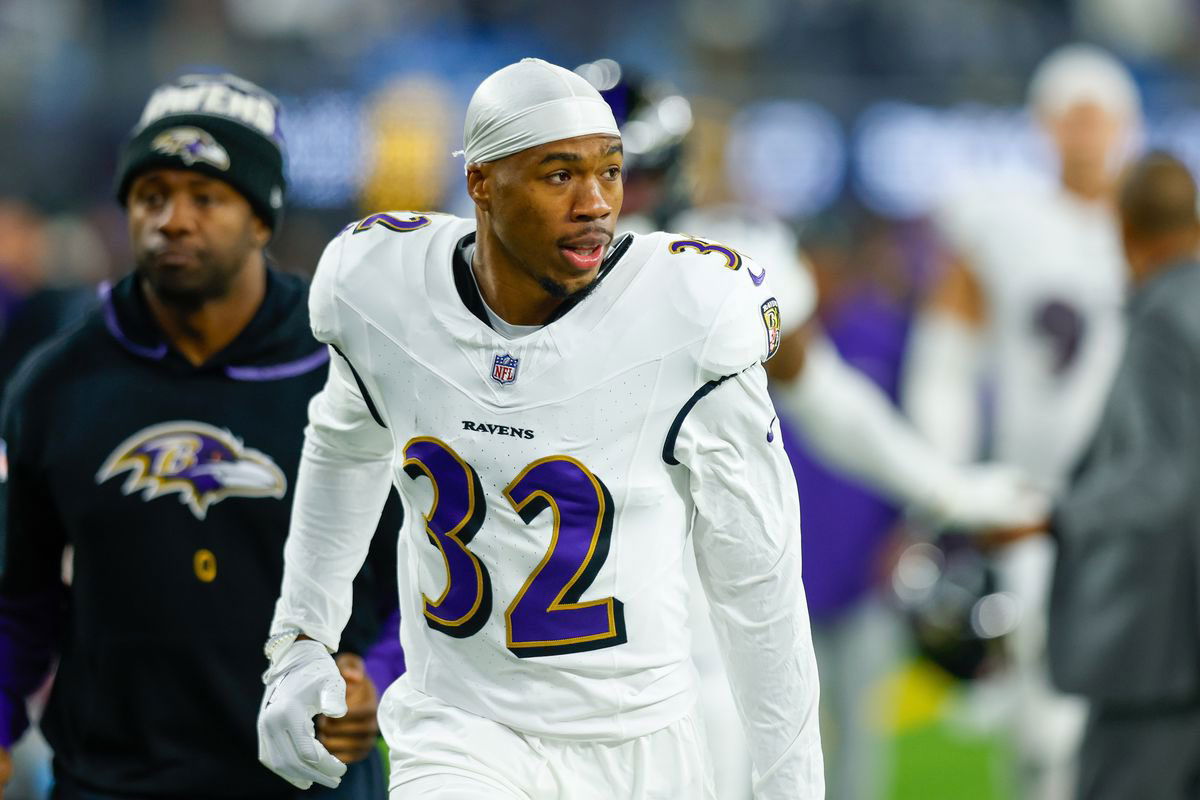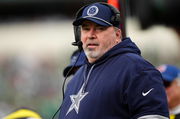
Imago
Credit: @LIVERavenNation

Imago
Credit: @LIVERavenNation
However, “Words can’t describe the way I’m feeling!!! I’m so grateful!! I can’t wait to get to work !! #Ravens #blessed @RavensMarcus”, Marcus Williams tweeted in 2022 after signing with the Baltimore Ravens. That year, the former Saints standout became one of the most expensive free-agent additions in franchise history, agreeing to a five-year, $70 million deal. Known for his range and instincts, Williams was expected to bring leadership and consistency to the Ravens’ secondary. However, injuries and inconsistency soon defined his time in Baltimore.
Watch What’s Trending Now!
Entering the 2024 season, Williams carried the weight of expectation and pressure. As one of the team’s highest-paid defenders, he was supposed to be a cornerstone of their defense. But instead of stabilizing the secondary, his year spiraled into confusion, frustration, and eventually, a quiet exit. According to Pro Football Focus, he gave up 14 catches for 247 yards and three touchdowns when targeted in coverage – numbers that made him a visible weak link. When the Ravens released him a few months ago, few were surprised. But now, Williams has broken his silence. And he’s pulling back the curtain on what he says really happened behind closed doors.
In a recent conversation with former teammate Terron Armstead, Williams opened up about the turmoil he experienced in Baltimore. He started by owning up to his role in the team’s struggles.“I take accountability for whatever action that I did that they didn’t like. But I didn’t know what actions those were. But I take accountability for maybe missed opportunities, maybe missed plays that I could’ve done better on”, he said. However, once he laid out the personal accountability, Williams shifted the spotlight toward the Ravens, and more specifically, to a flawed system that, in his eyes, never gave him a fair shot. And that’s when his real frustration came out.
ADVERTISEMENT
Williams described repeated communication failures within the team and didn’t shy away from placing blame on the coaching structure. He called it “miscommunication from the top down.” Williams began the 2024 season as a starter, holding that role through the team’s first seven games. His last start came in a high-scoring win over the Tampa Bay Buccaneers. However, the Ravens benched him ahead of Week 8. It came after a surprising loss to the Cleveland Browns – a game where fellow safety Eddie Jackson “struggled mightily,” according to Williams.
Marcus Williams blames miscommunication on his underperforming season with Baltimore:
“They could’ve communicated properly and effectively so that there was no missed communication when the switch was gonna occur. I mean, I’ve played football for a long time. You don’t just get… pic.twitter.com/i9yUyGsPCb
— The Ravens Realm (@RealmRavens) July 20, 2025
The Ravens brought Williams back into the starting lineup in Week 9, only to bench him again after what he described as a “disastrous performance” in a Week 10 win over the Cincinnati Bengals. From that point on, the Ravens limited him to just two defensive snaps for the rest of the season. Meanwhile, the secondary safeties settled in with Kyle Hamilton and Ar’Darius Washington. Williams admitted the move left him confused. “It didn’t make sense to me,” he told Armstead. “You don’t just get bad overnight.”
ADVERTISEMENT
From then on, he barely saw the field, even as others struggled. Williams kept a low profile after losing his starting role, spending the final stretch of the season as a reserve. The Ravens made him inactive for their last five regular-season games and both playoff matchups. Meanwhile, head coach John Harbaugh quietly parted ways with multiple defensive assistants after the season, including assistant head coach Chris Hewitt and secondary coach Doug Mallory.
While some blamed his on-field performance, Marcus Williams argued that it was the system that set him up to fail. Though John Harbaugh never publicly criticized him, Williams strongly hinted that he became the scapegoat for a defense that couldn’t get on track early in the season. “Somebody had to take the fall,” he said, “and even if it wasn’t my fault, I wasn’t about to throw anyone under the bus.”
ADVERTISEMENT
A career reset or a lesson learned for Marcus Williams?
Though he feels misunderstood, Marcus Williams kept his criticism measured. “I’m about my business,” he explained. “I do things the right way – watch film, treat people right, work hard. That’s why the lack of communication hurt.” He didn’t take shots at coaches or teammates. Instead, he expressed his appreciation for the opportunity Baltimore gave him, the fans who supported him, and the organization that signed him in 2022. However, the way things ended left a lasting impact.
Despite the benching and the release, Williams said he never lost focus. He trained hard, stayed prepared, and made plays in practice, especially when matched up with Lamar Jackson. “Since midseason, I’ve been good to go,” he said. He believes he remains one of the league’s top safeties and is ready to prove it. Though his quiet approach may have given fans and media the wrong impression.
ADVERTISEMENT
Since Williams stayed silent during most of the season and didn’t show much emotion on the sidelines, fans and media had assumed that he had checked out. But that couldn’t be further from the truth. “I’m not a flashy person. I’m not a big talker. But, when I’m probably done with football, I’m gonna be the one saying, like, ‘This is what happened. This is how it happened’, Williams said. He explained that speaking up earlier might’ve labeled him a “cancer” in the locker room, a reputation he actively tried to avoid. He added, “Nobody really knows what’s going on in the locker room besides the people in there.” Williams believes staying quiet and professional was the better option, even though it cost him a chance to control the narrative.
Top Stories
Sources: Bears Emerge as Suitors for Travis Etienne Jr., Chargers Expected to Cut Mekhi Becton, Toledo QB Not Focused on NFL

Pittsburgh Steelers Make Final Mike McCarthy Decision as Aaron Rodgers Gets His HC Wish

Chiefs Threaten Kansas Exit Over $3 Billion Dispute as Clark Hunt & Ownership Demand a ‘Landlord’ for New Stadium

Donald Trump Announces Super Bowl Decision, Slams Halftime Performer Bad Bunny & Green Day

Dak Prescott’s Fiancée Doesn’t Hold Back on Ex-Cowboys HC Mike McCarthy’s New Steelers Job

Now, he’s looking ahead. As he explores free agency again, Marcus Williams wants a team that values open communication and direct coaching – things he believes were missing in Baltimore. He knows his time with the Ravens might raise red flags for other franchises, but he hopes coaches judge him on his full body of work and not just one rocky season. “I know who I am. I know what I bring,” he said. At 28, he believes he still has years of great football left. He continues training, staying locked in and waiting for a call from a team that sees more than just numbers on a stat sheet. As he prepares for the next chapter, he carries both a chip on his shoulder and a blueprint for what he needs next: structure, trust, and clear direction.
ADVERTISEMENT
ADVERTISEMENT
ADVERTISEMENT



